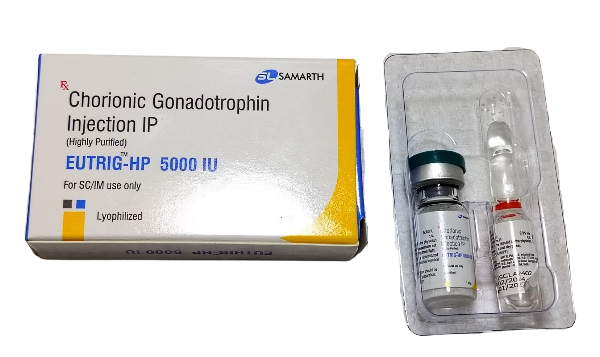FunkOdyssey
Seeker of Wisdom
Cortex released a video on this concept of using hCG and DHEA as the foundation of a protocol and then tailoring testosterone dose around that:
I have kept going back and forth with hCG myself. I've noticed, now that I have some Janoshik-verified potent hCG (eutrig), if I take 250 iu EOD, after a few doses my libido goes from the usual dead state to pretty damn high. It is actually the most dramatic libido result I've experienced, besides an occasional blip after increasing testosterone dose. I'm realizing that finding a way to make hCG work is probably the only way I'm going to have a good libido on TRT. Bear in mind my libido pre-TRT was also nil, but among the many benefits I've derived from TRT, sustainably improved libido was not one of them.
It makes me think of Nelson, and how he basically turns on and off his libido like a light switch by adding or removing the 1000 iu hCG weekly from his baseline 100 mg weekly TRT protocol. He's been on TRT a VERY long time, and I wonder if that is the state that many men will reach eventually, where testosterone alone isn't able to support normal sexual desire anymore after many years of HPTA shutdown. I see themes like this on Reddit too.
I am inspired to try dropping my test cyp dose to ~100 mg weekly to give myself the E2 headroom for a longer-term trial of hCG. Dropping the TRT dose is painful because of how impactful that is on lifting and physique, but I think it's time to rip off that bandaid.
Anyone ever approached a protocol with this mindset before? Making a substantial dose of hCG the central non-negotiable pillar, and then letting testosterone have the remaining scraps of your capacity to handle e2?
I have kept going back and forth with hCG myself. I've noticed, now that I have some Janoshik-verified potent hCG (eutrig), if I take 250 iu EOD, after a few doses my libido goes from the usual dead state to pretty damn high. It is actually the most dramatic libido result I've experienced, besides an occasional blip after increasing testosterone dose. I'm realizing that finding a way to make hCG work is probably the only way I'm going to have a good libido on TRT. Bear in mind my libido pre-TRT was also nil, but among the many benefits I've derived from TRT, sustainably improved libido was not one of them.
It makes me think of Nelson, and how he basically turns on and off his libido like a light switch by adding or removing the 1000 iu hCG weekly from his baseline 100 mg weekly TRT protocol. He's been on TRT a VERY long time, and I wonder if that is the state that many men will reach eventually, where testosterone alone isn't able to support normal sexual desire anymore after many years of HPTA shutdown. I see themes like this on Reddit too.
I am inspired to try dropping my test cyp dose to ~100 mg weekly to give myself the E2 headroom for a longer-term trial of hCG. Dropping the TRT dose is painful because of how impactful that is on lifting and physique, but I think it's time to rip off that bandaid.
Anyone ever approached a protocol with this mindset before? Making a substantial dose of hCG the central non-negotiable pillar, and then letting testosterone have the remaining scraps of your capacity to handle e2?
Last edited:













